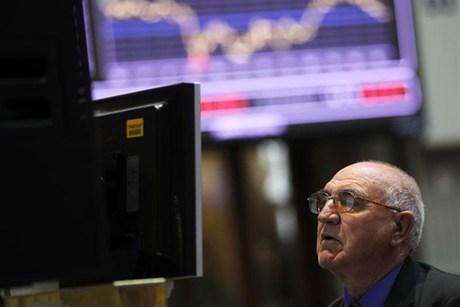The euro crisis continues to unfold as Europe's debt bubble becomes more fragile. While media attention has been focused on Greece, Spain is shaping up to be the next big country to collapse.
Borrowing costs from the market have been fluctuating around 6% as so-called market sentiment gauges Spain's prospects.
The market seems to have become more convinced that Spain is a better investment destination than it was before, as Spanish government bond interest rates fell to 5.89% yesterday. Spain was expected to raise 3 billion euros in a bond auction, but managed to raise 3.2 billion euros, more than expected.
Still, the situation remains dire. A good indicator of how financial markets view a country is the cost of insuring its government against defaulting on its debt. This insurance is bought using derivatives called credit default swaps, and this week the cost rose to a record high. It currently costs £500,000 to insure a £10 million Spanish debt for five years; the same amount in Germany costs £70,000.
Spain hasn't been issuing many long-term bonds lately, which means that, on average, the time it has until outstanding debt matures and must be paid is getting shorter, like a lit fuse.
Even the mainstream media is acknowledging the seriousness of the situation, with Liam Halligan warning in the Sunday Telegraph that Spain's debt bomb is about to explode: “The spectre of a new eurozone bailout looms large – except this time it's much bigger than Greece, with far more people involved and one of the world's largest economies.”
What neither Halligan nor his media colleagues point out is that the root of the problem is the banks and the banking system.
Spain has a huge budget deficit and a weak economy, but it is Spanish banks that are the biggest concern.
Total borrowing by Spanish banks from the European Central Bank doubled in March compared to February, reaching 316 billion euros. Spanish banks now account for around 30% of all European bank lending from the ECB.
Until the banking system is brought under control and the systemic debt is restructured, Europe and the world will remain stuck in a vicious cycle of debt accumulation and needing bailout after bailout.


